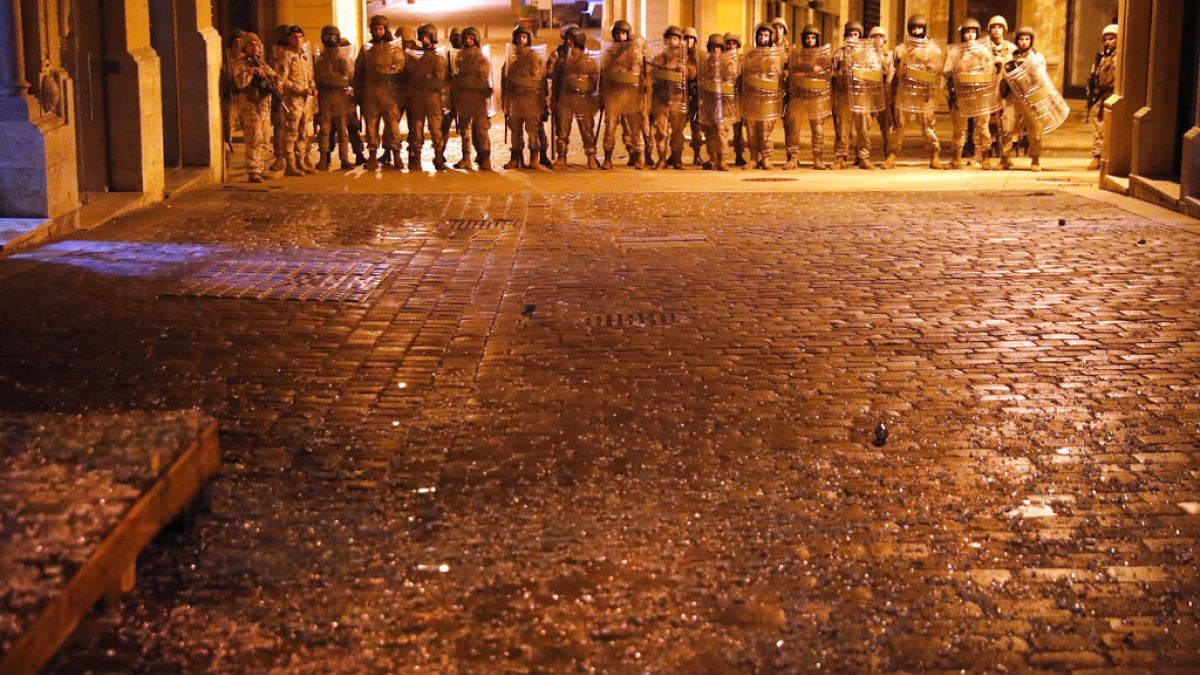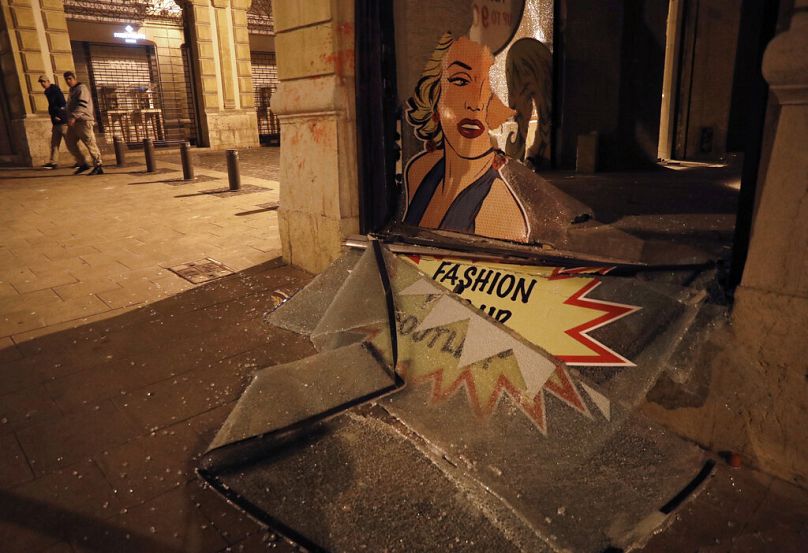Lebanese politicians have broken their promises in the past and have few credible ideas on how to end the country's dire economic crisis.
After months of near-constant protests, Lebanon is on fire. Rising tensions over the country’s deteriorating economy, coupled with an unhurried political class, have prompted protesters to attack Lebanese banks and clash with security forces in Beirut.
While rioters broke into storefronts and threw flares at police, protesters’ tents were torn and burned down in a stark image underscoring a crisis the likes of which Lebanon has not seen since the end of the country’s Civil War in 1989.
In a metaphor parallel to the fires in the streets of Beirut, the country’s Central Bank (Banque du Liban) continues to burn through dollar deposits financed by borrowing from private Lebanese banks as it tries to make loan interest payments and simultaneously shore up the rapidly depreciating Lebanese lira.
With the lira having lost more than 60% of its value since last summer, and with withdrawal limits in place, average Lebanese people have struggled to pay for fuel and other basic goods.
Their frustration has given way to anger with the growing realisation that the perceived government's over-spending and corruption have been financed with their own deposits; money which they are no longer able to freely access.
Whilst storefronts and cash deposits go up in smoke, outgoing foreign minister, Bassil Gebran is taking part in the World Economic Forum’s yearly snow retreat in the mountains of Switzerland.
There could hardly be a better image for the disconnect of the Lebanese political class to the country’s problems than to have its former foreign minister in Davos smiling while rubbing shoulders with bankers and intelligentsia and speaking about themes of inclusive growth.
For many Lebanese, Gebran embodies the sectarian and hereditary politics that have governed the country for the last 30 years. Unsurprisingly, his participation has sparked a public outcry, with two online petitions denouncing his participation to the summit garnering tens of thousands of signatures within days.
Although luxury accommodation and hobnobbing with global elite were undoubtedly a perk, Gebran’s true goal at Davos is certainly to try and convince major lenders to support a financial bailout for Lebanon.
Lebanon's Ponzi scheme
After foreign remittances slowed in 2017, the Banque du Liban began to burn through its own foreign reserves and increased lending from private Lebanese banks, who gladly took the high rates of return on their customers’ accounts, to finance government spending and skyrocketing external debt payments. (Lebanon is one of the most indebted countries, with its gross debt standing at 150% of GDP in 2019).
This Ponzi scheme was not sustainable and the black market rate Lebanese Lira began to nosedive last summer, further driving up costs for the import-dependent country. Capital controls along with a number of other measures were introduced but it was really only enough to stem the bleeding for a time.
Rather than tackle the debt crisis it facilitated, the Lebanese government banked on another external bailout to solve the crisis. Tragically, the international assistance Lebanon obtained in the past fueled reckless economic policies by Lebanese politicians, who used the funding and attention to obstruct reforms and cement their position.
Bassil Gebran is an exemplar of this behaviour and certainly sees his trip to Davos as a prime opportunity to obtain international assistance while making weak pledges of reform.
This is not likely to happen, however, with the region in turmoil and past broken promises by Lebanese politicians fresh in the minds of world leaders and politicians who hold the cheque books that the former now desperately seek.
Given the outright refusal of international lenders to give aid without a credible government that demonstrates the capacity to carry out serious reforms, Bassil Gebran is unlikely to bring back any cooling relief with him from Davos to calm the fires in Lebanon.
Unlike in Game of Thrones, where Machiavellian characters plot and scheme to sit alone atop the Iron Throne, Lebanon’s political class prefers to divide a diminishing pie into increasingly smaller pieces rather than be left out of the spoils of patronage.
If the new government led by Prime Minister Diab does not immediately begin to undertake serious reforms that inspire confidence for the Lebanese public at large, the fires in Lebanon are likely to rage for some time.
Given the protests in the immediate aftermath of the cabinet announcement, the new government will have a difficult task of satisfying the protesters, external creditors with whom it will need to restructure its debt, and the domestic and foreign interests of the political parties that backed it.
- Nick Grinstead is a senior regional security analyst at Le Beck International
____________
Are you a recognised expert in your field? At Euronews, we believe all views matter. Contact us at view@euronews.com to send pitches or submissions and be part of the conversation.

